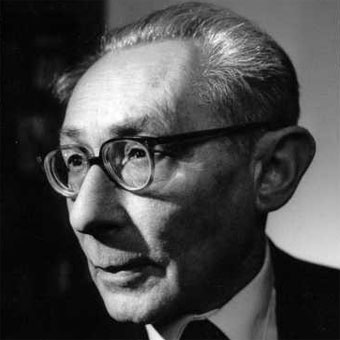
Hans Gál
Austro-Hungarian Hans Gál was a leading composer among those whose music was banned by the Nazis in the 1930s * Studied at Vienna University, preparing him for a career as a teacher, writer and composer * Taught piano and harmony at the New Conservatoire while continuing to study composition and musicology * Works such as the Five Intermezzi, Piano Quartet and First String Quartet helped establish his wider reputation * The 1914 piano trio Variations on a Viennese Folksong enjoyed extreme popularity * Decisive breakthrough came in 1923 with second opera Die Heilige Ente, premiered in Düsseldorf under Georg Szell and performed in some twenty opera houses * Became director of the Conservatoire in Mainz in 1929 * After Hitler’s accession to power in 1933, works were instantly banned * Emigrated to Edinburgh, Scotland, where he helped establish the Edinburgh International Festival and was appointed Lecturer at Edinburgh University * Important later works include De Profundis, Lebenskreise, Triptych and Symphony No.4 * Remained active as composer and teacher until death in 1987 * Last major work, 24 Fugues for piano, composed aged 90 * Winner of three awards for composition (State Prize, Art Prize of Vienna, Columbia Schubert Prize), awarded the "Order of the British Empire" and the Austrian highest state honour, the "Litteris et Artibus" * Style is often characterised as post-Brahmsian combining melodic flow and lyric warmth with classical clarity and frequently employing polyphonic contrapuntal textures * Recent years have seen a growing interest in his work resulting in a number of new recordings on the Avie, Nimbus and Meridian labels and a major exhibition at the Jewish Museum in Vienna
Works by Hans Gál include:
Variations on a Viennese Folksong (1914) for violin, violoncello and piano
Trio (1950) for violin, clarinet and piano
Triptych (1970) Three movements for orchestra
Symphony No.4 (Sinfonia Concertante) (1973) for flute, clarinet, violin, violoncello and orchestra
Also visit the Hans Gál website at www.hansgal.org
"One ought to take it for granted that musical creation must proceed from genuine feeling." – Hans Gál
